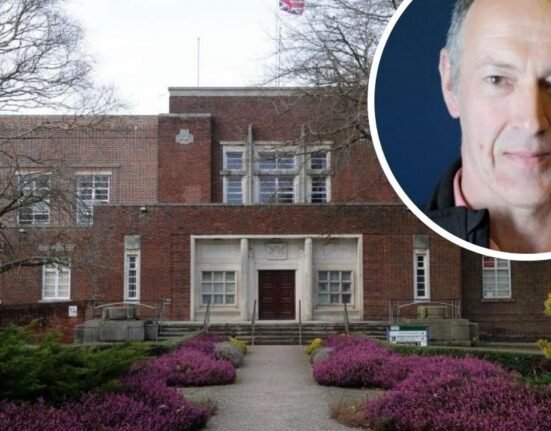The owner of the St Andrews eyesore – Forthtay Ltd – had appealed against last year’s decision by the Scottish Government to force the sale of the derelict land to local community group, Poets’ Neuk.
The local group planned to transform the site into a contemplative, public poetry venue.
Last week Sheriff Niven Smith rejected Forthtay’s appeal.
Using Community Right to Buy Legislation introduced in 2016, the Dundee Sheriff Court refusal means the transfer to the community must go ahead.
An important precedent for communities
This is a landmark decision in favour of communities across Scotland. It is the first time a community group has used this compulsory right to force the sale of land.
The judgement in favour of Poets’ Neuk sets an important precedent that land should be owned and managed in the public interest. If land is neglected, then communities with plans for sustainable development can force the sale of the unused land and bring it into community use for public benefit.
Read more on the issue of land reform in Scotland:
Less than three percent of Scotland’s is owned by the communities that live here, whilst fifty percent of the private rural land is owned by 421 landowners. Scotland has one of the most unregulated land markets in Europe with wealthy individuals and remote corporations free to buy up land irrespective of their plans, other landholdings or tax status.
We repeatedly see that these owners are then free to develop – or neglect – the land as they wish. They are free to invest in their Scottish property, or free to allow the site to decline, often with the hope of some future development value. Local enterprise can be encouraged or discouraged on the whim of the landowner. The owners of often vast estates can release land to help address the national housing crisis, or they can suppress the release of even small areas of land.
It is not a ‘land-grab’
The significance of Sheriff Niven Smith’s decision has rung alarm bells among some private landowners and their representatives. However, any fear-mongering would be misleading.
Landowners who ensure land is used in a beneficial way which meets the public interest- such as providing housing, employment, economic development or environmental wellbeing – have nothing to fear. But bad landowners who persistently neglect their property can be subject to a process where they lose their land to a community at a fair price. That is fair, reasonable and democratic. It has also now been shown to be legally robust.
It will hopefully now be much more difficult for landowners to neglect land when the community has firm plans to develop that land as a social, economic, cultural or environmental asset.

Poets’ Neuk decision should encourage radical new Reform Bill
The historic decision on Poets’ Neuk takes place against the wider debate on the Scottish Land Reform Bill. The initial Bill has been too cautious, and Community Land Scotland is amongst those pushing for more ambitious amendments which could transform land ownership in Scotland.
The Poets’ Neuk ruling has further underlined that private property rights are not sacrosanct, but always dependent on the public interest. Property rights can and should be interfered with when landowners are not meeting public interest considerations.
That principle should encourage the Scottish Government to take positive and ambitious action on the Land Reform Bill.
The Bill should ensure that all significant landholdings in Scotland are owned and managed in the public interest. If they aren’t, the landowners should face challenge to reform their land management practices and engage with communities, or their own ownership could come into question.
Public interest considerations should be at the heart of land reform legislation and a Public Interest Test must be introduced to scrutinise all sales of significant holdings, including an assessment being made of who is purchasing that land.
Again and again, we see landowners who do not engage with communities, who are largely absent, who treat estates as vehicles for private gain or ego projects, who won’t free up land for housing or local economic development. For generations it was impossible to deal with that neglect.
A derelict garden in St Andrews looks set to take us forward to a better, fairer place, where communities can be empowered to benefit from the land around them and where meaningful action can be taken against neglectful and absentee landowners.
Dr Josh Doble is the Policy Manager for Community Land Scotland







